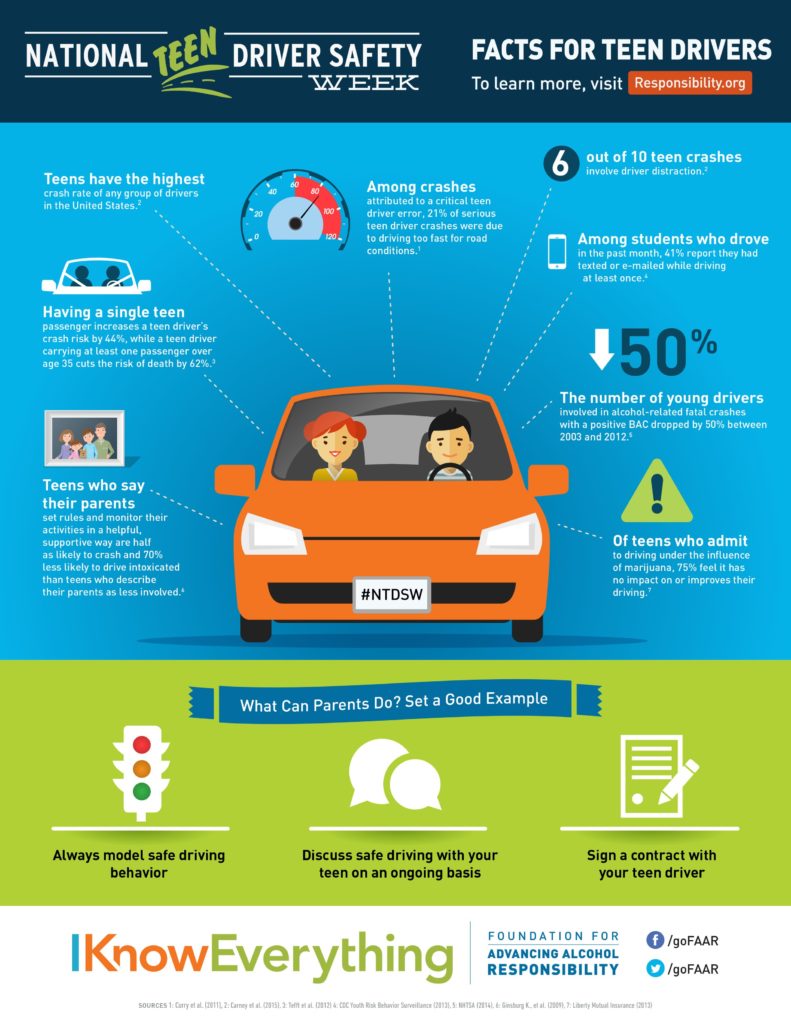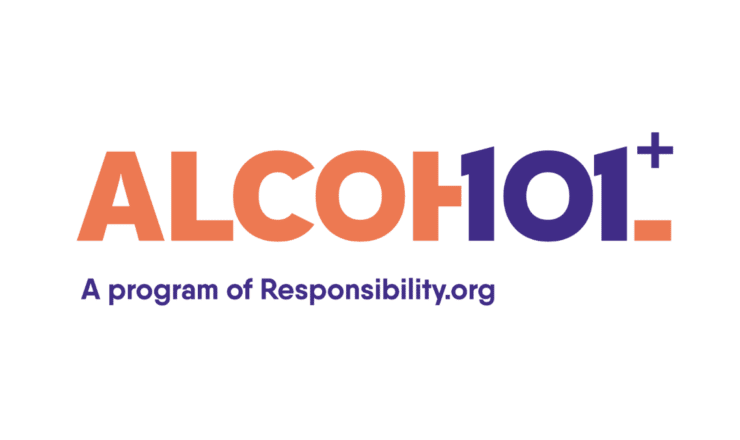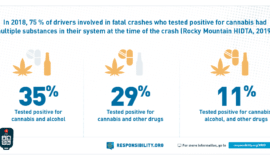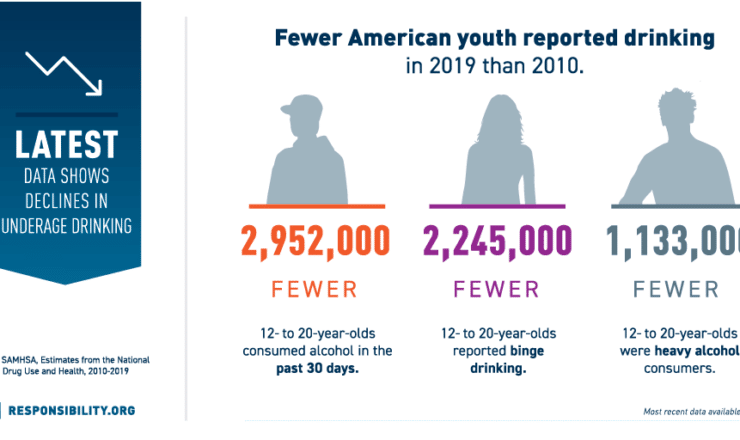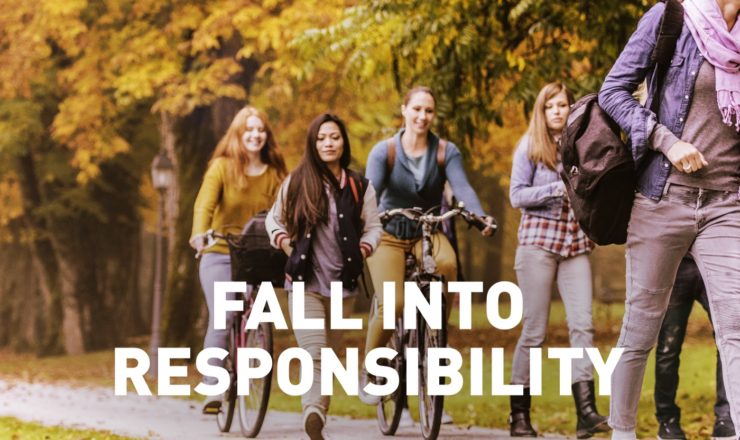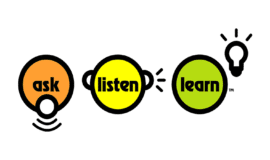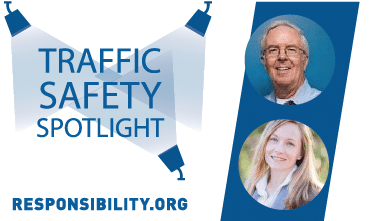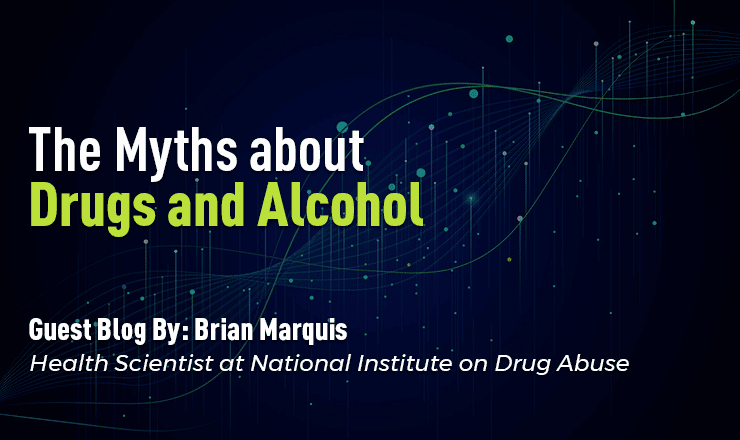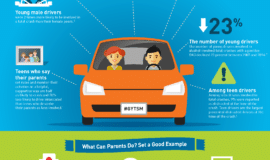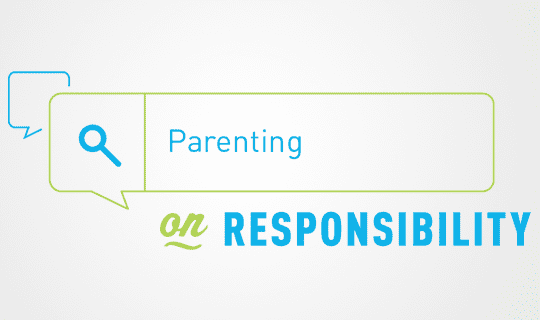The Perfect Time to Check In with your Teen Driver
In 2007, Representative Charlie Dent and Senator Bob Casey, both of Pennsylvania, and over 50 co-sponsors introduced a resolution creating National Teen Driver Safety Week (NTDSW), which is recognized the third week of October each year.
The resolution was the result of several tragic crashes involving high school students in Pennsylvania, and it was quickly supported by traffic safety experts at The Children's Hospital of Philadelphia (CHOP) and State Farm Mutual Automobile Insurance Company, with additional traffic safety organizations, teen safety advocates, and insurance companies adding their support to the initiative and promoting safety messages online.
The Foundation for Advancing Alcohol Responsibility (Responsibility.org) is an advocate for teen driver safety; our policy position on teen driver safety laws can be found here.
This year during National Teen Driver Safety Week we are pleased to support the National Organizations for Youth Safety (NOYS) and their efforts to keep teen drivers safe. NOYS brought traffic safety advocates and teens together at a summit in Alexandria to kick off this important week. Topics at the summit included impaired driving, distraction, and the importance of sharing the road with pedestrians and bicyclists as well as cars.
Why is this so important to so many people and organizations? It’s simple: traffic crashes are the leading cause of death among teens. Inexperience, distractions, and speed are major contributing factors in this shocking statistic – novice teen drivers just don’t know what they don’t know when they’re behind the wheel.
To gain the knowledge they need, teens should practice driving at different times of day and during varied weather conditions with a licensed driver in the passenger seat. Every state and D.C. has a 3-tier Graduated Driver Licensing (GDL) system that allows teens to gradually gain driving experience under lower-risk circumstances, with requirements for supervision and restrictions on nighttime driving and passengers. State laws vary widely; the Insurance Institute for Highway Safety has detailed information on state laws.
Parents are the leading influence on their teen’s decision not to drink alcohol underage. In addition to teaching teens how to drive, parents should continually stress that it is illegal to drink alcohol underage and that the dangers of driving drunk, distracted, drowsy, or after taking certain kinds of medication, are significant and can carry serious penalties if they do any of those things and are caught by law enforcement.
Teens need to remember that every state has a zero tolerance law that makes it illegal for teens to drive with any measurable amount of alcohol in their system. Penalties for breaking a zero tolerance law are serious, and can include long-term license suspension or revocation and fines. Parents can and should talk to their children when they’re young, before they reach driving age, about the dangers of drinking alcohol underage and the dangers of driving after consuming alcohol. It is also important for parents to outline their expectations for their teens regarding underage drinking as well as safe driving.
Once a teen has their license, education cannot stop. Parents should check in with their teen driver often and make sure he or she is following laws about the number of passengers that are allowed to ride in a car with a novice driver. Many states have laws requiring teens to wear a seat belt, laws that prohibit teens from using a hand-held cell phone or a cell phone at all, and laws that ban texting while driving. These laws exist for their safety, and to protect the lives of everyone else on the road.
For ways to help your new teen driver stay safe on the road, our IKnowEverything program has tools for parents and a short video refresher for teens that covers the rules of the road. We also created an infographic you can give to the teen drivers you know, or you can add your voice to countless other advocates by sharing it on your social media pages this week and tagging #NTDSW.
And all year long, lead by example and be the best driver you can be, especially when your kids are in the car. Let’s all work together to make our roads safe.
Devin Burke, Manager, Government Relations and Traffic Safety, joined Responsibility.org in 2011 and immediately became interested in the organization’s many programs and issue areas, especially those related to judicial education.

